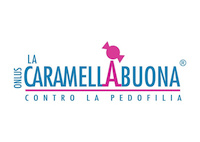Finding out that a loved one has been so dreadfully abused can be devastating and may make you feel very helpless and at a loss to know how to help, if at all.
The first and most important part to play is to listen with an open mind and an open heart. Bear in mind that it is possible that they have been struggling with finding the best way to speak about what happened, that they will have a mixture of emotions including possibly guilt and shame, that they may have become silent either because they were frightened into not speaking or because they have an experience of not being believed or being totally dismissed.
The best stance to adopt is one of loving, non-judgemental kindness.
There is no doubt that this kind of serious crime will impact on the family as a whole, but in the early days try to remember that it is about them, not you in the first instance. Being patient and willing to listen is all that is needed in those first moments/days.
Thereafter, one of the key things to bear in mind is that survivors have experience of having their power taken away from them in the most dreadful way so it is important that they have their right to choose and make decisions on what they need in terms of recovery. Part of the recovery process will hopefully take them down a path towards personal re-empowerment so communicate with them. Ask them what they need from you right now, be prepared for that to change and keep talking to them throughout the early days. They will need to know that they can trust you to do what they ask initially but that they may change as they begin their work.
Sometimes the temptation for family members who are so horrified is to rush in and try to ‘fix’ things – all with a huge and compassionate heart but it can be overwhelming and not necessarily the best way forward. Family members need to be ready to accept that some survivors will not want to pursue the matter legally, that they may have lost their faith, that they may have difficulties with intimacy, perhaps they may have moments of intense despair, or disassociation. They may not want to speak about it again to anyone else, they may need you to support them while they ‘go public’ or become involved in organisations and support groups with other survivors.
Keep asking them what they need, how you could be useful.
Having said that it is important to keep your boundaries clear as well – it is not useful for family members to take on the mantle for the survivor and there is always a danger when we see a loved on in such a sea of pain that it overwhelms everything and becomes part of the family members identification – this might be considered codependent so that instead of a healthy move towards wellness, actually someone else is part of the ongoing abuse.
Remember that your loved one is a SURVIVOR today, they are here, they are with you, they made it and that they still have that power to survive if they choose.
You can contact Survivors Voice as well for support and guidance on how to best respond to your loved one’s distress and we can also point you in the direction of support in your area.








